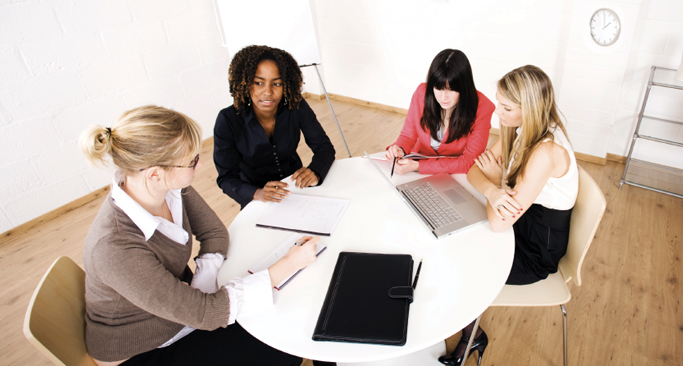Women insurance industry leaders in Massachusetts
share career insights and feedback to support
the next generation’s professional journey
By Maura C. Ciccarelli
Electric. Exciting. Energizing. Empowering. This is what women said they felt when they walked into the first-ever Speed Mentoring program for women in insurance at The Big Event, the 60th annual gathering of the Massachusetts Association of Insurance Agents (MAIA).
The three-hour session last September, developed by the MAIA and the Massachusetts Association of Insurance Women (MAIW), gave 18 women at all career levels the chance to connect with and learn from eight female insurance executives, as well as each other.
“Three hours seems like a long time but when you have a session like that, the energy in the room was just electric,” says attendee Julie Merry, operations team manager, commercial lines, for Arbella Insurance Group, based in Quincy, Massachusetts. “You could feel the excitement and the positivity within every woman in the room, which really made me feel so empowered.”
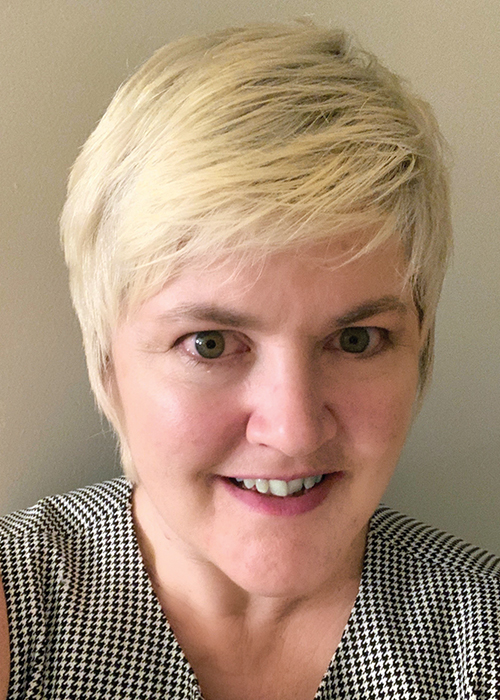
Principal
Safe Harbor Insurance Agency
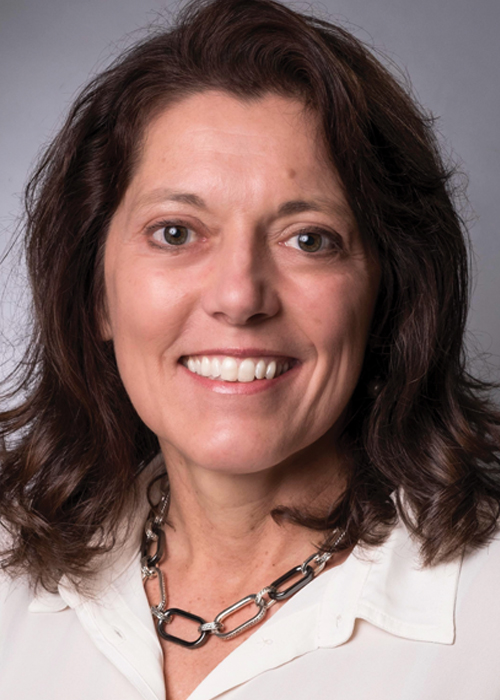
Vice President and COO
MAIA
Another participant, Andrea Stringer, agrees. “You just knew that you were going to walk in and the energy was going to be off the chart,” says the account executive and service manager of personal lines for World Insurance Associates LLC, based in Taunton, Massachusetts. “I needed to be a part of that, despite being in the insurance business for over 20 years. Everything is changing.”
Session facilitator Colleen Ormsby, principal of Safe Harbor Insurance Agency, in Brewster, Massachusetts, says it’s important for women to help other women take control of their insurance careers.
“Women make up 93% of [agency staff] and have more entry-level positions than men,” she notes. “Yet at the C-suite level, women only make up 23%. And, only 4% of those are women of color.”
While the numbers have been going up over the years, Heather Kramer, vice president and chief operating officer of MAIA, based in Milford, Massachusetts, notes that “being a mentor, you have that ability to tell someone younger than you what you’ve learned.”
Speed mentoring format
The purpose of the women’s-only event was to give attendees the opportunity to be mentored by successful female executives within the field and let participants learn from some of the best. It was designed to build confidence, expand networks, and learn about the tools needed to succeed and grow in a position.
Kramer, who organizes The Big Event every year, says the idea for the speed mentoring program was sparked by discussions with Ormsby and others from the MAIW at the previous year’s event. To support women’s career building, the idea arose to adapt the classic speed networking format to a mentorship focus.
The keynote speaker was Mary Boyd, CEO of Hiscox USA, who shared her successful career story and how she’s taken her skills and abilities from one level to the next.
Before everyone moved to one of the eight round tables where their first chosen mentor sat, the mentees had a chance to tell the entire group their career story in a short “elevator” pitch or speech. This gave them a bit of public speaking experience, sometimes for the first time.
Stringer, who calls herself an introvert, says she appreciated the chance to challenge herself through more public speaking because “if you don’t put yourself in the situation, you’re not going to grow.”
Next, the mentors gave a quick bio before the speed networking rounds began. They included:
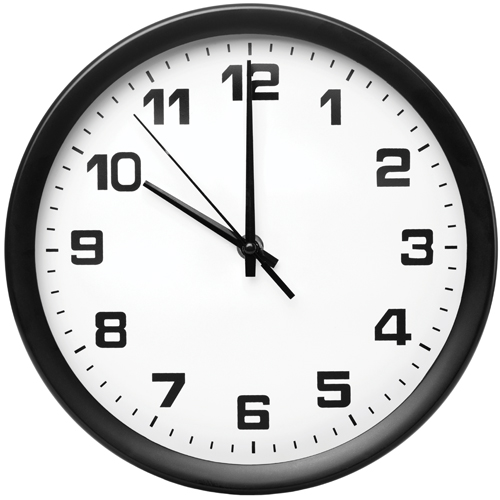
Melissa Gilbo, CEO of the Women’s Business League and Melissa Gilbo Consulting
- Laura Henderson, MBA, CPIA, CLP-A, vice president of insurance portfolio management for SIAA, Inc.
- Lisa Hirbour, CPCU, CIC, principal of The Feingold Companies
- Trang Huynh, owner of Beacon Trust Insurance
- Mabelyn Lopez, owner of
4 Insurance, LLC - Lynellen Ramirez, chief actuary, senior vice president of data & analytics of Arbella Insurance Group
- Mary Roy, senior underwriting team leader of CRC Group
- Nadeen Vella, principal of Navella Insurance
“We heard all these amazing stories from amazing women,” Ormsby says. “You could just see in everyone’s eyes that they were so excited to hear what these women’s paths were.”
Just three hours
With Ormsby watching the clock, participants moved quickly to their chosen mentor’s table, each of which had seating for two or three mentees only.
“It created real camaraderie and people had fun,” Ormsby says. “After each round, we had to practically drag people from one table to the next, they were just so engaged.”
During the afternoon program, there was only time for each mentee to meet four of the mentors. However, the last round wasn’t long enough for its stated purpose: to give mentees feedback on their elevator speech. Instead, the mentors committed to sending feedback by personal email.
Ormsby says the event also introduced the idea that everyone can benefit from learning about how to negotiate what you want in your professional life, including how it interacts with your personal life.
“No matter how experienced you are, how polished you are, or how successful you are, we can all learn,” says Kramer. “There’s always something we can learn and we can get better at. It can make the world of difference.”
The purpose of the women’s-only event was to give
attendees the opportunity to be mentored by successful female executives … .
It was designed to build confidence, expand networks, and learn about the tools needed to succeed and grow in a position.
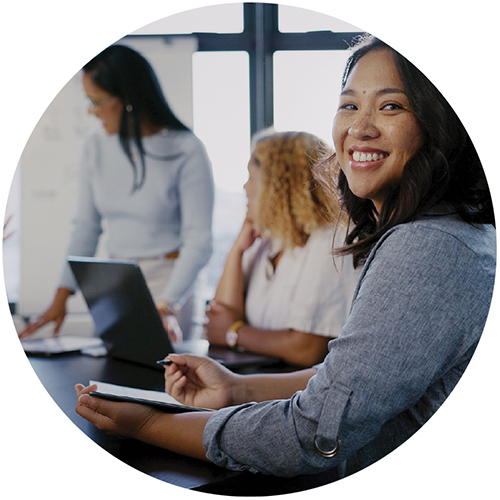
Takeaways
Because so many participants gave feedback that they loved the event but that it was “too short,” the organizers have decided to continue the program throughout the next year until the next Big Event, when a new cohort will start their mentorship journey.
“We’re trying to figure out what works and how to keep it going,” Ormsby says. “Mentorship is about building relationships and not just handing your business card to people. It’s getting to know people, their values, and what their interests are. That’s how you really connect through networking.”
Kramer says other key learnings are that mentoring goes beyond professional networking connections. It includes helping women insurance professionals learn how to approach difficult conversations, talk to a boss about their expectations and what they want from a job, how to not take business decisions personally, how to deal with sexism, and how to be effective in work-life balance.
Merry, who has worked in the industry for 10 years, says she particularly enjoyed tips from one of the mentors, Laura Henderson, about how to beef up a LinkedIn profile by showcasing skills within various jobs. Henderson also recommended finding a mentor at your own company and joining employee groups and councils to connect with other women insurance professionals.
“That would give you more exposure to network in other areas,” Merry notes.
Stringer says it was nice not only to hear about similar experiences but also to meet people who had another perspective.
“At one point, I asked a question and another woman at the table looked at me and said, ‘You know, I’ve been that person that you’re talking about right now.’ And we exchanged experiences and supported one another.”
Stringer adds that creating a space for open dialogue means people don’t feel they will be critiqued in a negative manner and so they can receive messages in a better way.
“I think that’s incredibly important,” she says. “We work in a man’s world. We need to help each other grow without pushing each other aside.”
Merry concludes, “It’s really important to take in what other people have gone through and learn from that and create your own journey through it.”
The author
Maura C. Ciccarelli is a long-time freelance journalist originally from Philadelphia. She writes about business and more from an adobe home in southern New Mexico, after spending nine years living on the road full-time with her husband in their Airstream trailer.

